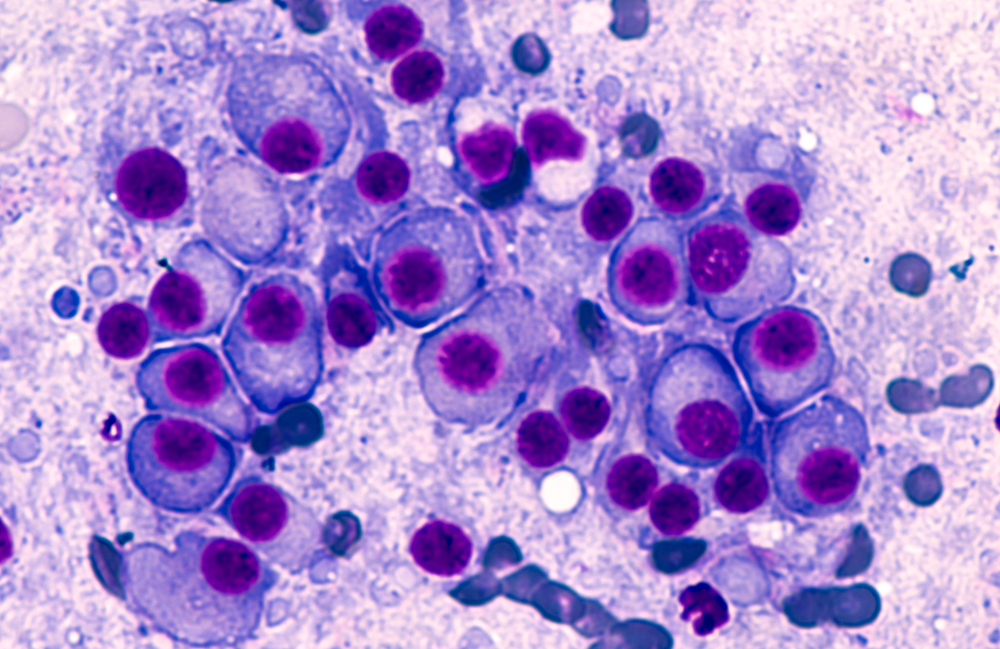-
Cancer
Mayo Clinic cancer expert highlights advancements in treating multiple myeloma

ROCHESTER, Minn. — March is Myeloma Awareness Month, and Sikander Ailawadhi, M.D., hematologist/oncologist at Mayo Clinic Comprehensive Cancer Center, shares details about new advancements in research leading to better outcomes for patients with multiple myeloma.
Multiple myeloma is a relatively uncommon form of blood cancer in the bone marrow that affects less than 1% of the U.S. population, according to the American Cancer Society. While there is no cure, the disease can be treated with medication, chemotherapy, radiation and even bone marrow transplant to help extend the quality of life for patients.

Dr. Ailawadhi is co-leading a team of researchers at Mayo Clinic looking at chimeric antigen receptor therapy, also known as CAR-T cell therapy, to treat patients with multiple myeloma, and the development of new drugs to target various cancer-specific markers, including B-cell maturation antigen (BCMA) and others.
"Advancements with new medications and therapies for treating myeloma are continuously evolving and changing. This is an exciting time to be researching cancer medicine to identify new therapies that will provide hope for patients with cancer," says Dr. Ailawadhi.
CAR-T cell therapy is a cutting-edge cancer immunotherapy that involves genetically modifying T cells to make them specific for cancer cell markers and activates the immune system to recognize and destroy cancer cells.
In a recently published study in The New England Journal of Medicine, in which Mayo Clinic participated, researchers compared CAR-T cell therapy to the currently available standard treatment regimens for patients previously treated for multiple myeloma in whom the disease returned after treatment. The researchers measured progression-free survival rates, defined as the time during and after treatment that a patient lives with the disease, but it did not get worse.
The study showed that at a median patient follow-up of 18.6 months, the median progression-free survival from the cancer was 13.3 months in the group treated with CAR-T cell therapy, compared to only 4.4 months in the standard-regimen group.
"These findings show that we are moving in the right direction toward practice-changing research that would provide CAR-T cell therapy earlier during treatment of patients with relapsed multiple myeloma — something that will hopefully be standard of care in the future," adds Dr. Ailawadhi.
Mayo Clinic researchers continue to test new drugs targeting multiple myeloma as dedicated teams lead clinical trials using new CAR-T cell therapy platforms. CAR-T cell therapy is going through other innovative changes, including allogenic (donor cell-derived) CAR-T cell development, and utilization of the currently available CAR-T cell treatments in earlier lines of treatment. This will allow patients to receive the therapy sooner.
Currently, there are more than 40 active clinical trials available at Mayo Clinic for patients with multiple myeloma.
###
About Mayo Clinic
Mayo Clinic is a nonprofit organization committed to innovation in clinical practice, education and research, and providing compassion, expertise and answers to everyone who needs healing. Visit the Mayo Clinic News Network for additional Mayo Clinic news.
Media contact:
- Kelley Luckstein, Mayo Clinic Communications, newsbureau@mayo.edu







